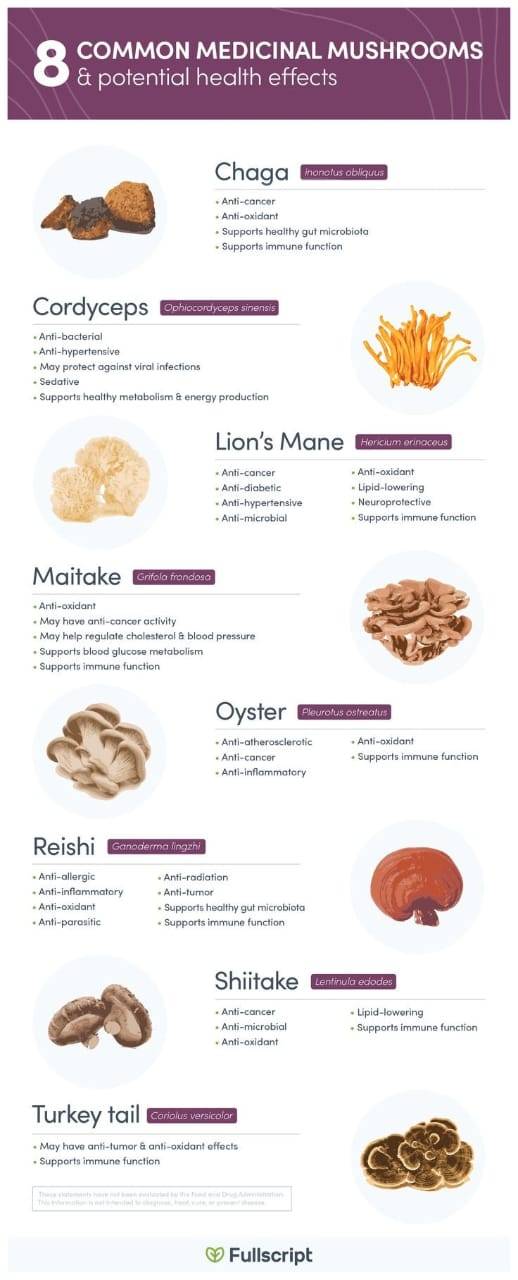Don't wanna be here? Send us removal request.
Text

Edible Mushrooms: A Comprehensive Review on Bioactive Compounds with Health Benefits and Processing Aspects
Mushrooms are well-known functional foods due to the presence of a huge quantity of nutraceutical components. These are well recognized for their nutritional importance such as high protein, low fat, and low energy contents. These are rich in minerals such as iron, phosphorus, as well as in vitamins like riboflavin, thiamine, ergosterol, niacin, and ascorbic acid. They also contain bioactive constituents like secondary metabolites (terpenoids, acids, alkaloids, sesquiterpenes, polyphenolic compounds, lactones, sterols, nucleotide analogues, vitamins, and metal chelating agents) and polysaccharides chiefly β-glucans and glycoproteins. Due to the occurrence of biologically active substances, mushrooms can serve as hepatoprotective, immune-potentiating, anti-cancer, anti-viral, and hypocholesterolemic agents. They have great potential to prevent cardiovascular diseases due to their low fat and high fiber contents, as well as being foremost sources of natural antioxidants useful in reducing oxidative damages. However, mushrooms remained underutilized, despite their wide nutritional and bioactive potential. Novel green techniques are being explored for the extraction of bioactive components from edible mushrooms. The current review is intended to deliberate the nutraceutical potential of mushrooms, therapeutic properties, bioactive compounds, health benefits, and processing aspects of edible mushrooms for maintenance, and promotion of a healthy lifestyle.

0 notes
Text

Mushrooms as future generation healthy foods
The potential of edible mushrooms as an unexploited treasure trove, although rarely included in known food guidelines, is highlighted. Their role in shielding people against the side effects of an unhealthy stylish diet is reviewed. Mushrooms complement the human diet with various bioactive molecules not identified or deficient in foodstuffs of plant and animal sources, being considered a functional food for the prevention of several human diseases. Mushrooms have been widely used as medicinal products for more than 2,000 years, but globally the potential field of use of wild mushrooms has been untapped. There is a broad range of edible mushrooms which remain poorly identified or even unreported which is a valuable pool as sources of bioactive compounds for biopharma utilization and new dietary supplements. Some unique elements of mushrooms and their role in preventative healthcare are emphasized, through their positive impact on the immune system. The potential of mushrooms as antiviral, anti-inflammatory, anti-neoplastic, and other health concerns is discussed. Mushrooms incorporate top sources of non-digestible oligosaccharides, and ergothioneine, which humans are unable to synthesize, the later a unique antioxidant, cytoprotective, and anti-inflammatory element, with therapeutic potential, approved by world food agencies. The prebiotic activity of mushrooms beneficially affects gut homeostasis performance and the balance of gut microbiota is enhanced. Several recent studies on neurological impact and contribution to the growth of nerve and brain cells are mentioned. Indeed, mushrooms as functional foods' nutraceuticals are presently regarded as next-generation foods, supporting health and wellness, and are promising prophylactic or therapeutic agents.

0 notes
Text
Mushrooms as future generation healthy foods
The potential of edible mushrooms as an unexploited treasure trove, although rarely included in known food guidelines, is highlighted. Their role in shielding people against the side effects of an unhealthy stylish diet is reviewed. Mushrooms complement the human diet with various bioactive molecules not identified or deficient in foodstuffs of plant and animal sources, being considered a functional food for the prevention of several human diseases. Mushrooms have been widely used as medicinal products for more than 2,000 years, but globally the potential field of use of wild mushrooms has been untapped. There is a broad range of edible mushrooms which remain poorly identified or even unreported which is a valuable pool as sources of bioactive compounds for biopharma utilization and new dietary supplements. Some unique elements of mushrooms and their role in preventative healthcare are emphasized, through their positive impact on the immune system. The potential of mushrooms as antiviral, anti-inflammatory, anti-neoplastic, and other health concerns is discussed. Mushrooms incorporate top sources of non-digestible oligosaccharides, and ergothioneine, which humans are unable to synthesize, the later a unique antioxidant, cytoprotective, and anti-inflammatory element, with therapeutic potential, approved by world food agencies. The prebiotic activity of mushrooms beneficially affects gut homeostasis performance and the balance of gut microbiota is enhanced. Several recent studies on neurological impact and contribution to the growth of nerve and brain cells are mentioned. Indeed, mushrooms as functional foods' nutraceuticals are presently regarded as next-generation foods, supporting health and wellness, and are promising prophylactic or therapeutic agents.
0 notes
Text
Edible Mushrooms: A Comprehensive Review on Bioactive Compounds with Health Benefits and Processing Aspects
Mushrooms are well-known functional foods due to the presence of a huge quantity of nutraceutical components. These are well recognized for their nutritional importance such as high protein, low fat, and low energy contents. These are rich in minerals such as iron, phosphorus, as well as in vitamins like riboflavin, thiamine, ergosterol, niacin, and ascorbic acid. They also contain bioactive constituents like secondary metabolites (terpenoids, acids, alkaloids, sesquiterpenes, polyphenolic compounds, lactones, sterols, nucleotide analogues, vitamins, and metal chelating agents) and polysaccharides chiefly β-glucans and glycoproteins. Due to the occurrence of biologically active substances, mushrooms can serve as hepatoprotective, immune-potentiating, anti-cancer, anti-viral, and hypocholesterolemic agents. They have great potential to prevent cardiovascular diseases due to their low fat and high fiber contents, as well as being foremost sources of natural antioxidants useful in reducing oxidative damages. However, mushrooms remained underutilized, despite their wide nutritional and bioactive potential. Novel green techniques are being explored for the extraction of bioactive components from edible mushrooms. The current review is intended to deliberate the nutraceutical potential of mushrooms, therapeutic properties, bioactive compounds, health benefits, and processing aspects of edible mushrooms for maintenance, and promotion of a healthy lifestyle.
1 note
·
View note